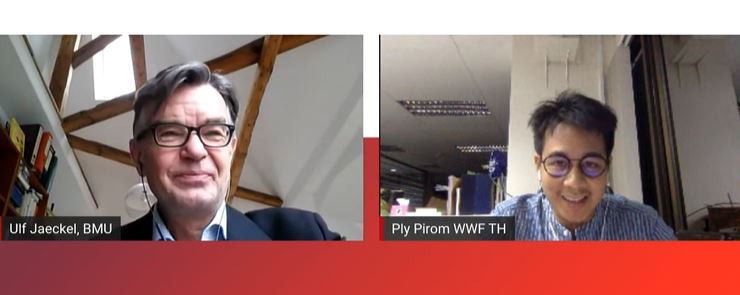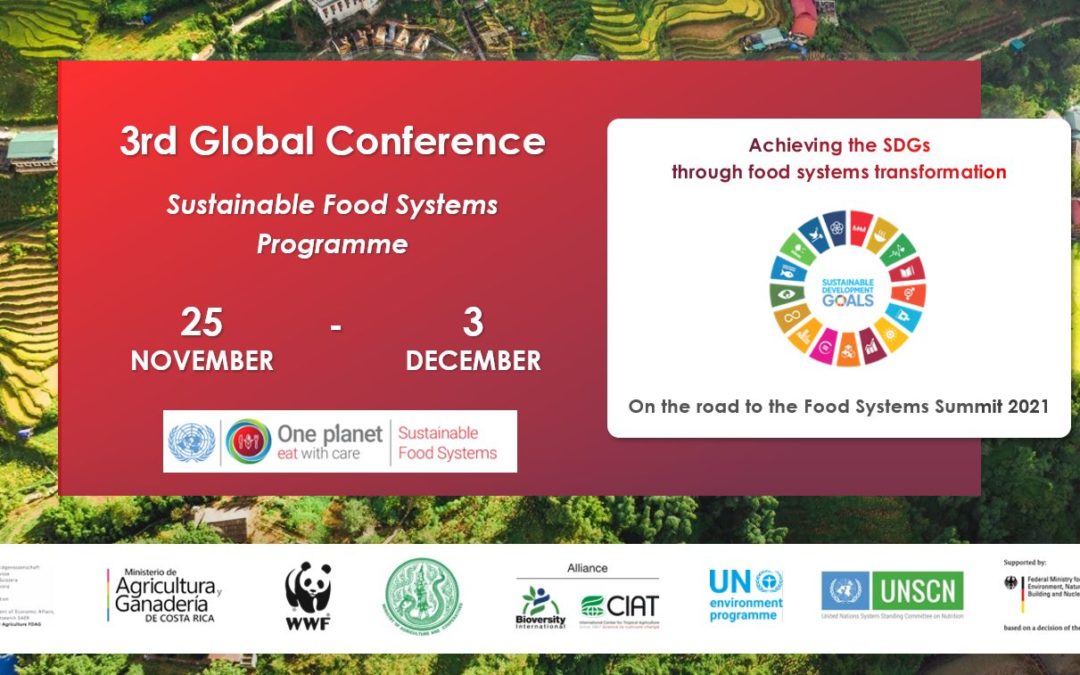Sustainable food systems conference at global level
The Sustainable Food Systems Programme (SFSP) of the UN One Planet Network is a multi-stakeholder dialogue mechanism, launched in 2015 based on a mandate stemming from the Rio+20 Conference on Sustainable Development. After its first global conference in South Africa in 2017, and the second global conference in Costa Rica in 2019, the SFSP brought together stakeholders and experts from across the globe at its third global conference held virtually between 25 November and 3 December 2020.
Over 700 single participants throughout the six conference days attended the rich discussions that covered several priority topics identified in the second global conference: collective action, leveraging scientific evidence, public procurement, among others. The SFSP conference hosted the first Global Dialogue of the 2021 Food Systems Summit, and it produced an Outcome Document with conclusions and recommendations for the Food Systems Summit – and beyond.
Background
Current food systems are unsustainable, calling for a profound and swift transformation in how we produce, process, retail, consume and dispose of food. Because all the above issues are deeply interrelated, they cannot be dealt with in isolation. Food systems are complex. They require a systems approach – involving all the relevant players across the food system through inclusive decision-making and integrated processes. Main objectives of the 3rd global SFSP conference were:
- Strengthen the vision that inclusive multi-stakeholder collaboration is essential
- Provide a platform for structured discussions
- Build alliances that can deliver actionable commitments
- Raise the political importance of sustainable food systems among public and private sector leaders
Addressing food systems through consumers – promoting awareness and behavioral change
Connecting to the Consumer Information Programme of the One Planet Network, one session of the global conference focused on consumer information and communication, with contributions by our SCP Project. Ply Pirom, project manager for the Thai project component, presented project activities in Thailand. He shared insights on integrating demand and supply sides and directly connecting producers to consumers, e.g. in form of the “Eat Better” campaign, farmers’ markets or market outlets in the retail sector.
The session was chaired by Dr. Ulf Jaeckel, Head of Division “Sustainable Consumption, Environmental Product Policy” of the Federal Ministry for the Environment, Nature Conservation and Nuclear Safety, Germany. The speakers included Daniela Acuna, Sustainable Production Officer, Department of Sustainability and Climate Change, Bureau of Agricultural Studies and Policies, Ministry of Agriculture Chile. Andre Nel, General Manager Sustainability, Pick’n Pay (South Africa) presented their concept for encouraging sustainable consumption in the retail sector. Daniel Vennard, World Resources Institute introduced the Better Buying Lab and the playbook for guiding diners towards plant-rich dishes in food service.

Dr. Ulf Jaeckel, Federal Ministry for the Environment, Nature Conservation and Nuclear Safety, Germany; and Ply Pirom, Project Manager SCP, WWF-Thailand talking about the crucial role of consumer information for establishing sustainable food systems (screenshot from the virtual conference session)

Jing Jai Farmer’s Market in Thailand © WWF-Thailand.

